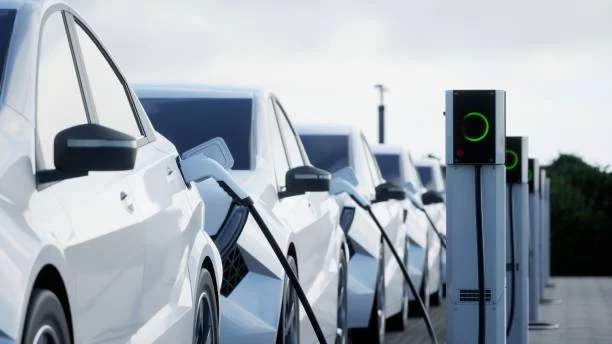The Impact of Battery Storage Container on Electric Vehicle Development
The development of electric vehicles (EVs) has been one of the most significant technological advancements in the automotive industry in recent years. As the world strives to reduce carbon emissions and shift towards sustainable transportation, the role of battery storage containers has become increasingly crucial. This article explores the profound impact that battery cases have on the development of electric vehicles.

Battery storage containers are the heart of an electric vehicle’s power system. They house the batteries that store and supply the energy needed to propel the vehicle. The performance, capacity, and safety of these containers directly influence the driving range, charging time, and overall reliability of the EV.
One of the primary impacts of battery cases on EV development is the improvement in driving range. In the early days of electric vehicles, limited battery capacity meant short driving distances, which was a major concern for consumers. However, advancements in battery technology and the design of storage containers have led to significant increases in range. For instance, modern lithium-ion battery packs, when housed in well-engineered containers, can now offer driving ranges of several hundred kilometers on a single charge. This has made electric vehicles more practical for daily commuting and long-distance travel, reducing “range anxiety” among potential buyers.
The charging time of electric vehicles is another aspect greatly influenced by battery storage containers. Efficient cooling and thermal management systems within the containers help to optimize the charging process. Faster charging capabilities not only save time for users but also enhance the convenience and usability of EVs. Quick-charge technologies, enabled by improved battery cases, are making it possible to recharge a significant portion of the battery’s capacity in a relatively short period.
Safety is of paramount importance when it comes to battery storage in electric vehicles. Battery storage containers are designed to protect the batteries from various hazards such as physical impacts, overheating, and electrical faults. They incorporate features like reinforced casings, fire suppression systems, and insulation to minimize the risk of battery failures and potential fires. The safety standards and regulations governing the design and manufacture of these containers are constantly evolving to ensure the highest level of protection for both vehicle occupants and the environment.
The size and weight of battery cases also have implications for the performance and design of electric vehicles. Compact and lightweight containers allow for better space utilization within the vehicle, improving the vehicle’s aerodynamics and handling. This, in turn, contributes to increased energy efficiency and a more enjoyable driving experience. Additionally, as the demand for higher energy density batteries grows, the design of the storage containers must adapt to accommodate these new technologies without sacrificing safety or performance.
The cost of battery cases is a significant factor in the overall affordability of electric vehicles. As research and development efforts continue, the aim is to reduce the manufacturing costs of these containers while maintaining or improving their quality and performance. This will help make electric vehicles more accessible to a wider range of consumers and accelerate their mass adoption.
The recyclability and sustainability of battery cases are also emerging as important considerations. As the number of electric vehicles on the road increases, the proper disposal and recycling of battery containers and their components become crucial for minimizing environmental impact. Manufacturers are exploring innovative ways to recycle and repurpose materials from used containers to create a more circular economy in the EV sector.
In conclusion, battery cases play a multifaceted and indispensable role in the development of electric vehicles. Their impact extends from enhancing driving range and reducing charging times to ensuring safety, optimizing vehicle design, and influencing affordability and sustainability. Continued innovation and improvement in battery storage container technology will be key to the continued growth and success of the electric vehicle market, driving us closer to a more sustainable and emissions-free transportation future.
As the automotive industry races towards a cleaner and more sustainable future, the focus on developing advanced, efficient, and safe battery cases remains at the forefront. The partnerships between automakers, battery manufacturers, and research institutions are crucial in driving these technological advancements and shaping the landscape of electric vehicle development for years to come.
With ongoing advancements and a collective commitment to sustainable transportation, the impact of battery storage containers on electric vehicle development is set to be even more profound, transforming the way we travel and reducing our carbon footprint one charge at a time.
